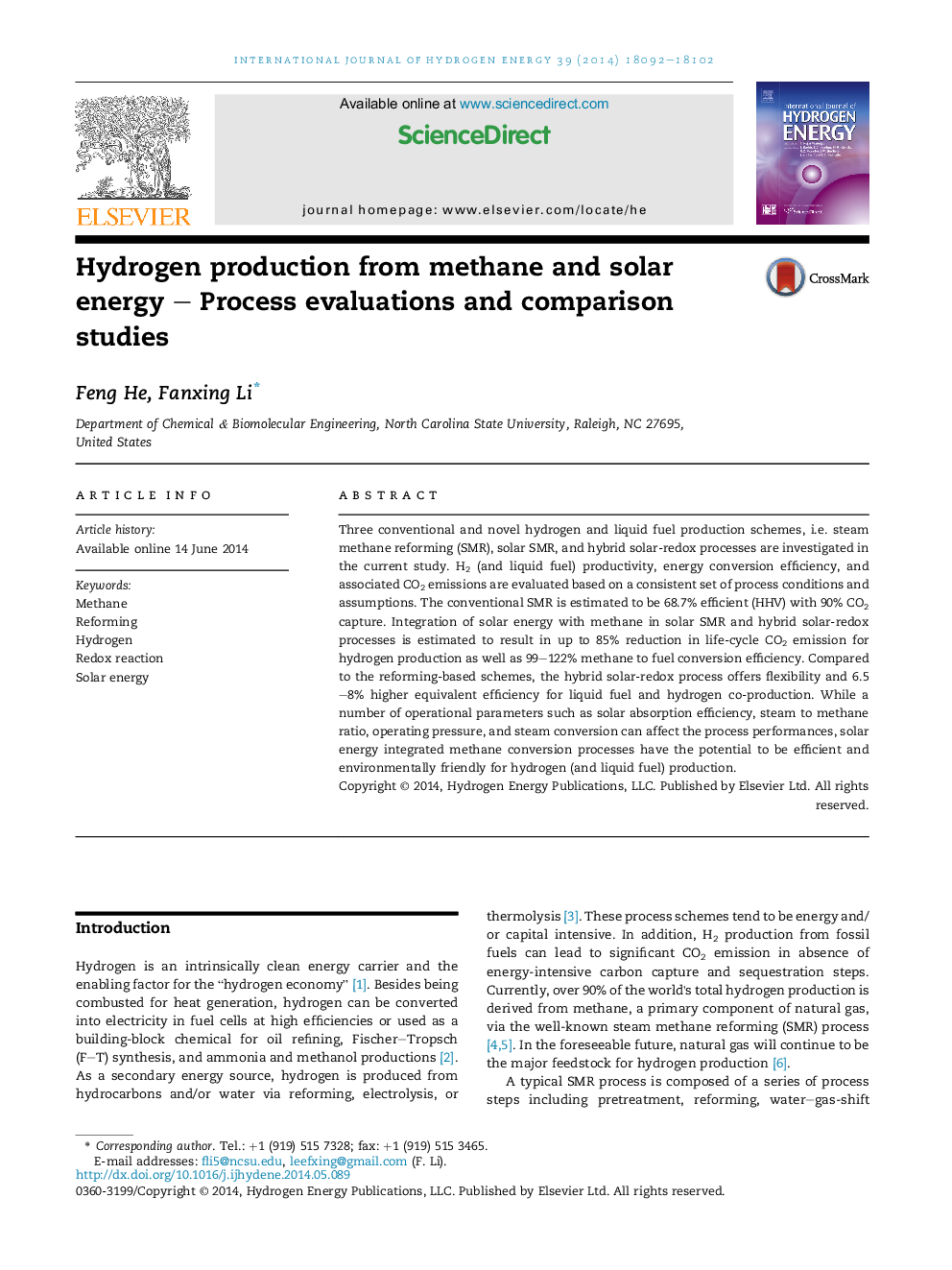| Article ID | Journal | Published Year | Pages | File Type |
|---|---|---|---|---|
| 1271906 | International Journal of Hydrogen Energy | 2014 | 11 Pages |
•Three methane conversion processes are evaluated for hydrogen generation.•The solar-assisted processes can achieve over 100% methane to fuel conversion efficiency.•The hybrid solar-redox process shows 7.7% (HHV) higher equivalent efficiency.•The hybrid solar-redox process shows 85% lower CO2 emissions than traditional schemes.
Three conventional and novel hydrogen and liquid fuel production schemes, i.e. steam methane reforming (SMR), solar SMR, and hybrid solar-redox processes are investigated in the current study. H2 (and liquid fuel) productivity, energy conversion efficiency, and associated CO2 emissions are evaluated based on a consistent set of process conditions and assumptions. The conventional SMR is estimated to be 68.7% efficient (HHV) with 90% CO2 capture. Integration of solar energy with methane in solar SMR and hybrid solar-redox processes is estimated to result in up to 85% reduction in life-cycle CO2 emission for hydrogen production as well as 99–122% methane to fuel conversion efficiency. Compared to the reforming-based schemes, the hybrid solar-redox process offers flexibility and 6.5–8% higher equivalent efficiency for liquid fuel and hydrogen co-production. While a number of operational parameters such as solar absorption efficiency, steam to methane ratio, operating pressure, and steam conversion can affect the process performances, solar energy integrated methane conversion processes have the potential to be efficient and environmentally friendly for hydrogen (and liquid fuel) production.
